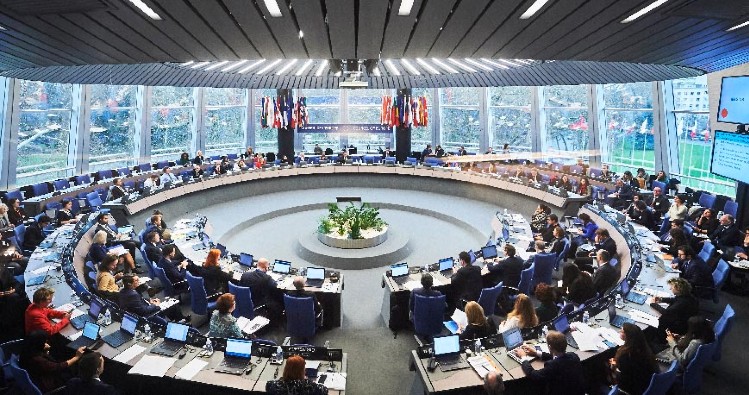Justice Ministry: Council of Europe’s ministers committee calls on Russia to submit action plan to implement decision of ECHR

The court, on January 21, 2021, released its judgement on the so-called “war case”, which said that during and after the Russia-Georgia 2008 war, Russia had committed “massive” human rights violations, while “exercising effective control” on Georgia’s regions of Abkhazia and Tskhinvali (South Ossetia). Photo: coe.int
The Council of Europe’s committee of ministers “strongly called” on Russia to submit a “full-fledged” action plan for the implementation of the decision of the European Court of Human Rights of 2021, to start taking effective steps to eliminate the main basis of the violations, continuous occupation, and to prevent the recurrence of human rights violations, the Georgian justice ministry announced on Saturday.
At the meeting, the Georgian side highlighted the significance of the decision of the committee, and noted that despite the termination of Russia’s member status of the Council of Europe, the respondent state still had an “unconditional obligation” to strictly implement the court’s decision, which the committee “fully supported”.
The committee emphasised the “severity and scale” of the established violations and expressed “deep concern” that Russia has not yet allowed the internally displaced ethnic Georgian citizens to return to their homes in Abkhazia and Tskhinvali, while also calling on Russia to implement “effective measures” in this direction.
The court, on January 21, 2021, released its judgement on the so-called “war case”, which said that during and after the Russia-Georgia 2008 war, Russia had committed “massive” human rights violations, while “exercising effective control” on Georgia’s regions of Abkhazia and Tskhinvali (South Ossetia).
The court said that Russia violated the following articles:
- The right to life (Article 2).
- Prohibition of torture, inhuman or degrading treatment or punishment (Article 3).
- The right to liberty and security (Article 5).
- The right to protection of private and family life (Article 8).
- Protection of property (Article 1 of Additional Protocol 1);
- Freedom of movement (Article 2 of Protocol No. 4).
 Tweet
Tweet  Share
Share